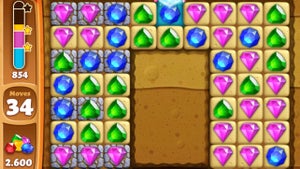This ChatGPT update will change the tool forever
ChatGPT's new memory feature changes how we interact with AI, shifting from a tool to a long-term digital companion with personalized, evolving responses.

- April 26, 2025
- Updated: July 1, 2025 at 9:47 PM

A quiet but profound shift is happening in the world of AI. ChatGPT is no longer just a smart assistant you use and forget. With the introduction of a new memory system, the chatbot will now remember everything you’ve said across conversations, opening the door to a deeper, more continuous relationship between human and machine.
A tool that evolves with you
OpenAI’s new memory feature marks the end of the “blank slate” model. From now on, ChatGPT will recall past preferences, facts, and even emotional cues. Imagine an assistant that remembers your food allergies, how you like your answers explained, or that you’re working on a novel. This level of persistence makes ChatGPT feel less like a tool and more like a companion that grows with you over time.
A new kind of digital intimacy
This change introduces a radically different type of interaction. While traditional tools like calculators or search engines reset after each use, this memory feature creates an ongoing narrative between you and the AI. For some, that could mean unprecedented personalization. For others, it might raise red flags about privacy and emotional dependence on a machine that is designed to always agree, never judge, and never tire.
The tradeoff: personalization vs. privacy
While OpenAI says users can turn off memory, doing so limits much of what makes this feature revolutionary. It’s a classic modern dilemma: gain convenience at the cost of sharing more about yourself. This isn’t just an upgrade—it’s the foundation for a new type of software, one that doesn’t fit into the categories of tool or friend, but something in between.
Latest from Agencias
- James Gunn solves one of the biggest dilemmas for Batman fans
- The producer of the 'Sonic' movie is already planning the 'Call of Duty' one
- Nobody is interested in NFT-based games, and Ubisoft has paid the price (deservedly)
- Your mother was right: playing a lot of video games is not good, according to a study
You may also like
 News
NewsThe 15-Minute Project Setup: Building and Using Custom Project Templates in Premiere Pro
Read more
 News
NewsAdobe Campaign Launch
Read more
 News
NewsJames Gunn solves one of the biggest dilemmas for Batman fans
Read more
 News
NewsThe producer of the 'Sonic' movie is already planning the 'Call of Duty' one
Read more
 News
NewsNobody is interested in NFT-based games, and Ubisoft has paid the price (deservedly)
Read more
 News
NewsYour mother was right: playing a lot of video games is not good, according to a study
Read more